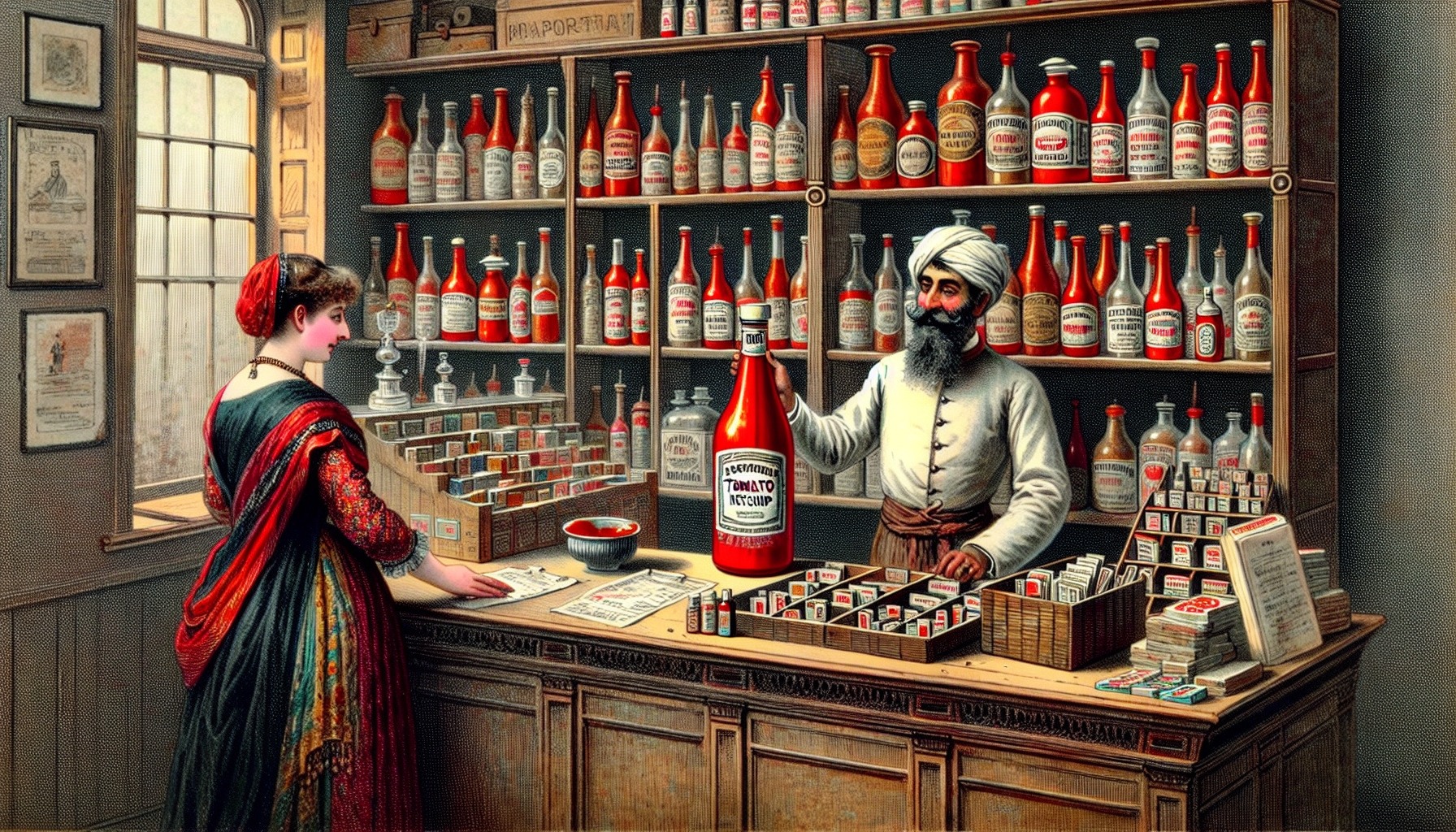
Ketchup as a cure for indigestion? Believe it or not, in the 1830s, ketchup was marketed as a medicine in the United States! A doctor named John Cook Bennett created a recipe for “tomato ketchup pills,” claiming they could treat ailments like diarrhea, jaundice, and indigestion. At the time, tomatoes were considered a health food because they were thought to have medicinal properties—some even believed they could cure scurvy due to their vitamin C content. Bennett’s pills were made by boiling down tomatoes into a concentrated paste, mixing it with spices, and forming it into tablets.
The idea caught on, and soon “Dr. Miles’ Compound Extract of Tomato” hit the market, promising to fix all sorts of stomach woes. People gobbled up the pills, not knowing they were basically eating a less tasty version of the condiment we slather on fries today. But here’s the funny part: the ketchup medicine craze led to a flood of fake products. Scammers sold sugar pills dyed red, claiming they were tomato-based, and the market became a mess. By the 1850s, the fad died out as people realized the pills didn’t work miracles, and ketchup went back to being a condiment.
Modern ketchup, as we know it, took off in the late 19th century when Henry J. Heinz perfected his recipe in 1876, adding vinegar and sugar to make it shelf-stable. Heinz’s version became a global hit, and today, Americans buy about 10 billion ounces of ketchup annually—that’s roughly 3 bottles per person each year! So next time you dip a fry, just imagine someone in the 1830s popping a ketchup pill for their tummy troubles. It’s a saucy reminder of how food trends can get a little wild.

Leave a Reply